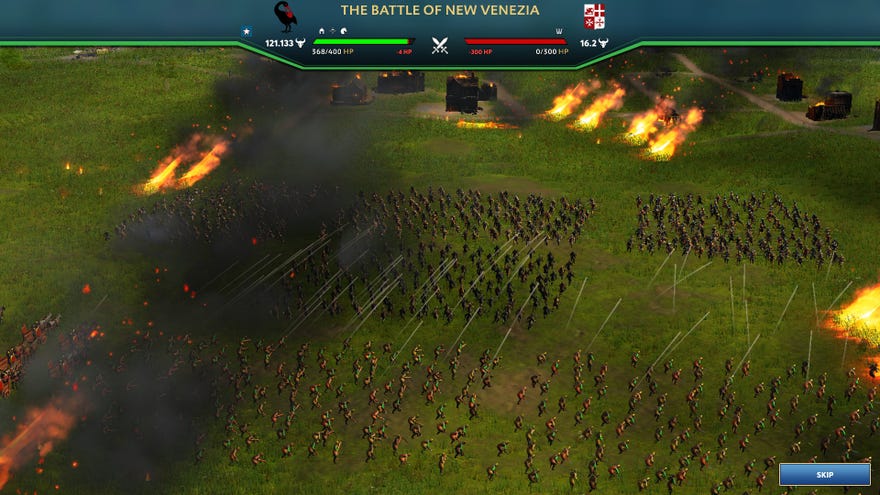Ara: History Untold review: a pretty, almost great resource management game chafing under a 4X suit
Delegation of a nation
I am puzzled by Ara Colon History Untold's priorities. At its heart are a couple of interesting ideas undermined by its own determination to put the wrong thing on centre stage. Make a rich and elaborate resource management game with an unorthodox research system, but then spend so much time on a simultaneous turn system and detailed animations that you're left with a cumbersome interface and lifeless AI, and you too might wind up making Ara.
There's an almost great game here, but it's all neglected and bruised from being shoved into the packaging of a lacklustre 4X.
The premise is, for simplicity's sake: Civilisation again. You pick a historical people and take them from Unk and Thogg scratching shapes on a rock with another rock to Unkbot Is God Now, probably conquering Ugg and Thonk's tribe along the way.
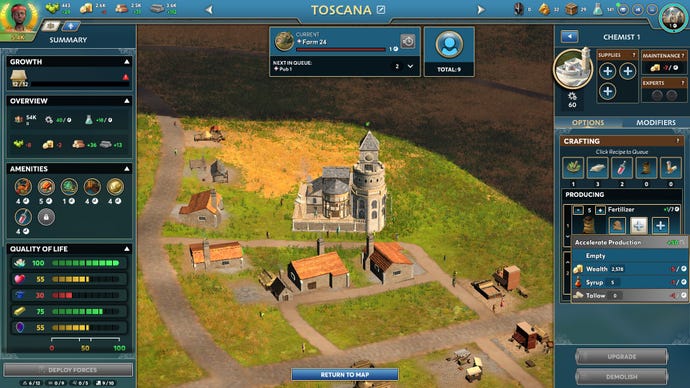
Ara reveals its best ideas right away, although it'll be a hell of a time before you really figure them out. In a sort of Endless Legend way, after researching enough topics in one of its 12 eras, you can move on to the more advanced technology of the next. But doing that discards any unresearched topics, so any buildings, units, even resources tied to them are lost to you forever. More interestingly, many goods and buildings can be unlocked by multiple topics, so if you miss out on, say, the wheel, you could unlock it later by researching algebra. But you'd never get chariots. It's even possible to lock out major resources by carelessly skipping every chance at them. Witness me inventing libraries and building Oxford University long before figuring out how to make paper.
Another side effect if you linger to research more is that a later topic might become less desirable since you've already unlocked most of its rewards, gently encouraging replay variety as early priorities influence your later ones. I'd have had an interesting oral-only academia if I hadn't eventually researched windmills.
Some daftness aside, it's a fun system, and vital because all those buildings and resources and items it unlocks are far, far more important than any new types of soldier. Resources in your typical 4X are just another +1 to something, but Ara's economic/production system is basically the whole game. You don't buy buildings with just construction points; you also need timber and stone in specific amounts, and later more advanced goods. Build a workshop and it'll produce equipment (consuming specific goods to accelerate the rate), which could be anything from bread to televisions. Each of those could be consumed to produce something else again, or installed in another building to speed its work, added to housing to give the whole city a tiny bonus, or consumed by a city to give it a bigger but temporary bonus.
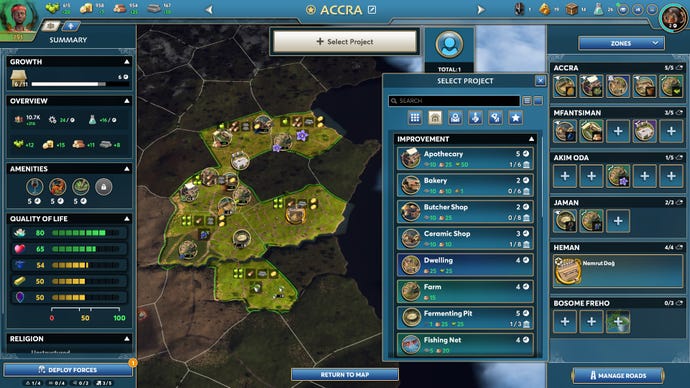
But first you have to extract the resources, which means building the right mine or farm on a specific slot within a region within a city. Instead of squares or hexes, you unlock procedurally generated regions as a city grows, which provide varying rates of food, gold, timber, and materials. All but gold can be multiplied again with the relevant farm/mines, but each region has a different number of building slots, some containing useful resources. Some buildings apply bonuses to others in their region (encouraging specialisation of certain industries like baking or metallurgy), and others apply bonuses to the city's quality of life ratings - five measures like health, wealth, and happiness that divide or multiply other things each city is doing. Growth is always a careful decision. You're seldom just expanding into wherever the number is biggest.
If that was a lot to take in... well, yes. It is. It is a hugely complex system with loads of variables, and easily the defining feature of the game. By proportion of time spent, Ara is not a competitive 4X but a manufacturing puzzle. There are no logistics, and roads are as trivial as they are irrelevant, but it's factory builders who might enjoy it most. I initially did, but it runs afoul of two major problems. The first is that diplomacy is almost pointlessly simplistic, but its AI civilisations are crap at the game anyway. I was soon running rings around them on middling difficulties despite having no army and making a mess of my cities.
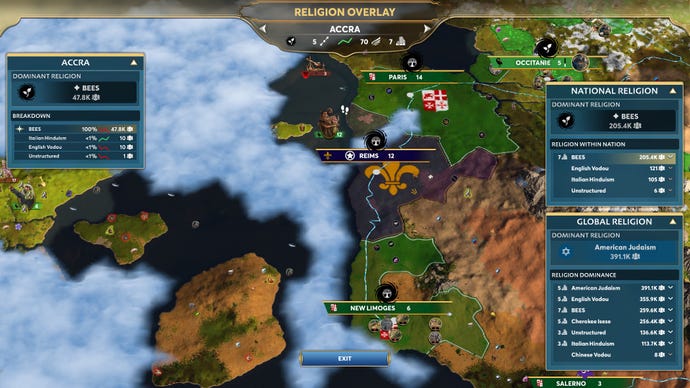
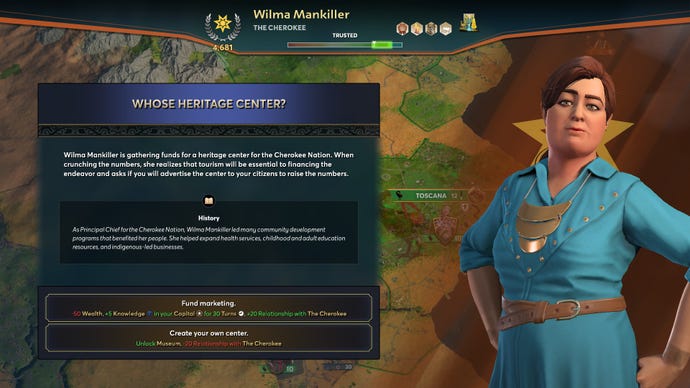
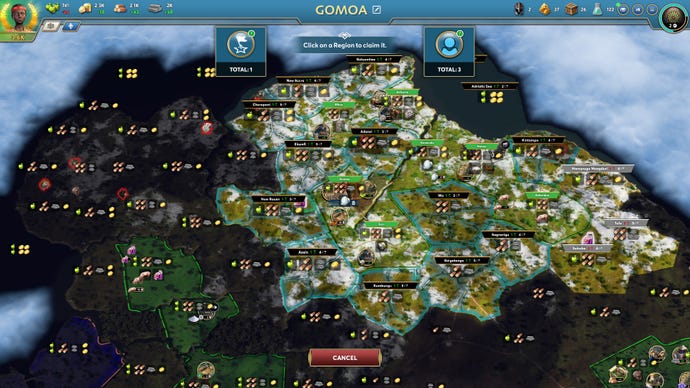
The second is that Ara's robust item tooltips are where the convenience ends. Map overlays and summary screens are almost non-existent, and the longer you play, the more desperately you'll want even some basic macromanagement tools. I liked the planning challenge, but the longer it went on, the more bogged down I got in the busywork of it. Manually equipping every factory with every tool, then zooming back out to search for that toolmaker and why it stopped working, trying to remember what materials hurry up that item, which city is constructing what where. You’re pointlessly notified of every single item produced or consumed, but not when they run out. God help you if you conquer a city, because it will be laid out all wrong and you'll have to relocate ten buildings, while repeatedly reallocating all the manufacture. And the menu layout, god.
Ara's world is teeming with detailed and varied animations, all to serve the 1% of time where you won't be looking at the map (which doesn't zoom out far enough) or the menus on either side of the pretty building (which consequently require far too much scrolling). Its battles show countless fully animated wardudes for completely non-interactive combat whose outcome is already revealed beforehand, removing all excitement.
It has dozens of playable civilisations, many under-represented in games and with less obvious leaders, with unique flavour text during rare era transitions. Yet they show no personality or discernible differences in behaviour, which is so fluctuant and opaque that I was ignoring all foreign relations messages before long, and a great many innate bonuses are so useless that the joy of playing as Boudicca, Osh-Tisch, or Step On Me Business Suit Sappho quickly fades to forgetting which you even are. That its simultaneous turn system was so hard to implement makes its utter irrelevance all the more baffling.
Ara is an interesting and enjoyable spin on the Civ concept but becomes unwieldy long before it's over. Figuring out how to build a thriving empire will be an enjoyable challenge to people looking for a certain kind of production chain game, but I don't see its malnourished AI and ballooning micromanagement keeping them around once they do.
